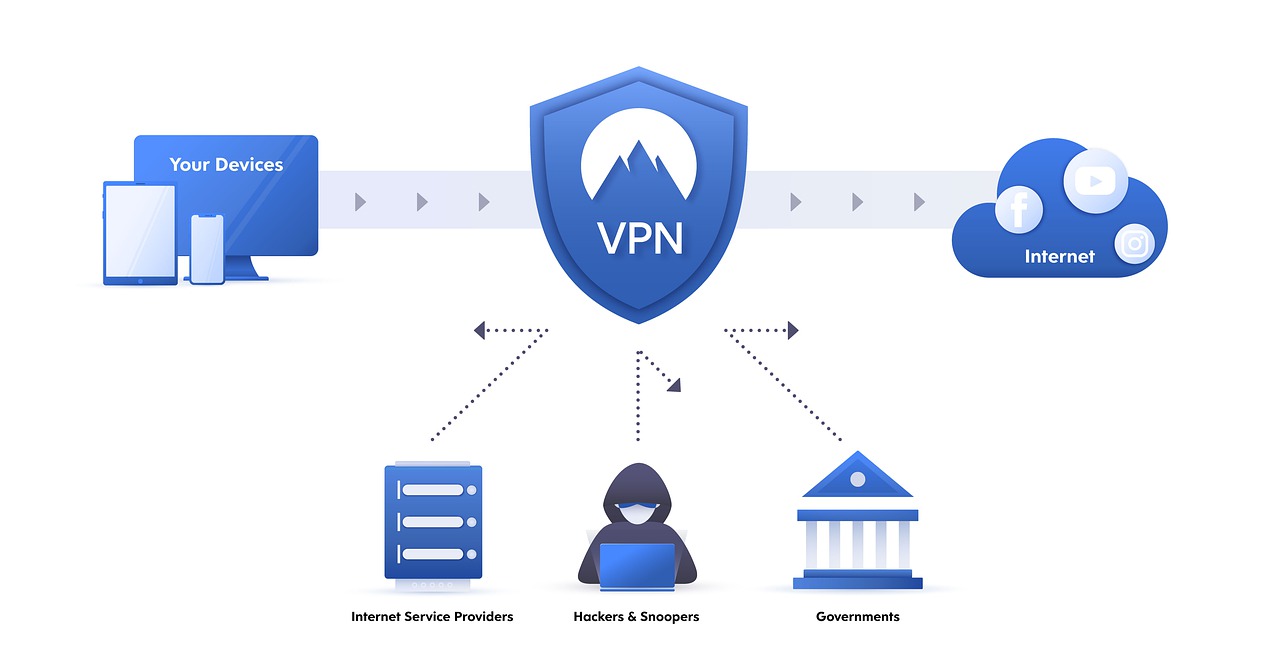As traveling becomes more and more convenient, people are relying more and more on the Internet to get information, stay in touch, and conduct personal business. However, when we use public Wi-Fi networks while traveling, our online security and privacy are at great risk. That's why it's important to use a VPN while traveling.A VPN (Virtual Private Network) is an encryption technology that provides security and privacy for your Internet connection. A few important roles of a VPN while traveling are discussed below.

1. Protecting Personal Privacy: While traveling, we often need to use public Wi-Fi networks, such as those provided by airports, cafes or hotels. However, these networks usually do not have adequate security measures, making your personal information vulnerable to hackers and cyber eavesdroppers. Using a VPN ensures that your privacy is not violated by encrypting your Internet traffic. a VPN creates a secure tunnel that sends your data from your device to the VPN server, protecting your sensitive information from eavesdropping and surveillance.
2. Bypass Restrictions:In some countries or regions, you may encounter blocked websites, applications or services. This may limit your access to the information you need or the entertainment content you are used to. By using a VPN, you can simulate the location of the server of your choice, allowing you to bypass geo-restrictions. For example, if you are in a country that restricts access to certain websites, you can connect to a VPN server located in another country and gain freedom to access blocked content.
3. Prevent data theft: When traveling, we often need to handle sensitive personal and financial information on our mobile devices, such as online banking transactions, booking hotels or purchasing airline tickets. When using public Wi-Fi networks, your data is vulnerable to hackers who can steal your personal information or utilize your account for fraudulent activities. a VPN prevents data theft by encrypting your data transmissions and ensuring that your personal and financial information is protected.
4. Provide a secure online banking and shopping experience: While traveling, you may need to make frequent online banking transactions or purchases. This involves entering sensitive account and payment information. The insecurity of public Wi-Fi networks makes your bank account and credit card information vulnerable to hackers. Using a VPN adds a layer of security to your Internet connection, ensuring that your online banking and shopping experience is safer and more secure.
5. Avoid Censorship and Surveillance: Internet censorship and surveillance are common in some countries. Government agencies or third parties may monitor your Internet activity and censor the content of your communications. Using a VPN can help you protect yourself from such censorship and surveillance. By using a VPN to encrypt your Internet traffic, you can ensure that the content of your communications and your online activities are not subject to unwanted interference and surveillance.
To summarize, using a VPN while traveling plays a crucial role in protecting your privacy, bypassing geo-restrictions, preventing data theft, providing a secure online banking and shopping experience, and avoiding censorship and surveillance. Whether you're traveling for business or leisure, using a VPN provides you with a secure and private Internet connection, ensuring a more peaceful and smooth online experience. When choosing a VPN service provider, make sure you select a trusted provider that offers a fast, stable and secure connection. Protect your online security and privacy and enjoy digital freedom while traveling!
 Email
Email